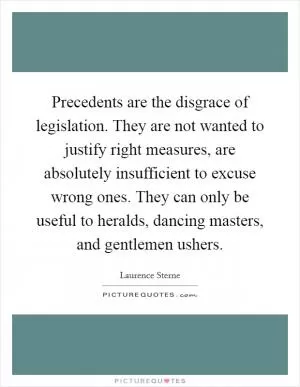To have respect for ourselves guides our morals; and to have a deference for others governs our manners

To have respect for ourselves guides our morals; and to have a deference for others governs our manners
Laurence Sterne, the renowned 18th-century novelist and clergyman, was a firm believer in the importance of respect for oneself and deference for others in shaping one's morals and manners. In his works, particularly in his most famous novel "Tristram Shandy," Sterne often explored the complexities of human nature and the intricacies of social interactions. Through his characters and their actions, Sterne highlighted the significance of self-respect and respect for others in guiding one's behavior and shaping one's character.Sterne understood that having respect for oneself is essential in determining one's morals. When individuals have a strong sense of self-respect, they are more likely to uphold moral values and principles in their actions and decisions. Self-respect serves as a moral compass, guiding individuals towards making ethical choices and behaving in a virtuous manner. In "Tristram Shandy," Sterne's protagonist, Tristram, grapples with various moral dilemmas and struggles to navigate the complexities of life. Through Tristram's journey, Sterne emphasizes the importance of self-respect in staying true to one's beliefs and values, even in the face of adversity.
Furthermore, Sterne believed that having deference for others is crucial in governing one's manners. Deference involves showing respect, courtesy, and consideration towards others, regardless of their social status or background. By treating others with deference, individuals demonstrate empathy, kindness, and understanding, fostering positive relationships and creating a harmonious social environment. In "Tristram Shandy," Sterne portrays characters who exhibit varying degrees of deference towards others, highlighting the impact of manners on interpersonal dynamics and social interactions.
Overall, Sterne's philosophy on respect for oneself and deference for others resonates with timeless truths about human nature and the importance of moral and ethical conduct. By embracing these principles, individuals can cultivate a sense of integrity, empathy, and compassion, leading to a more fulfilling and meaningful life. In the words of Laurence Sterne, "To have respect for ourselves guides our morals; and to have a deference for others governs our manners."












 Friendship Quotes
Friendship Quotes Love Quotes
Love Quotes Life Quotes
Life Quotes Funny Quotes
Funny Quotes Motivational Quotes
Motivational Quotes Inspirational Quotes
Inspirational Quotes